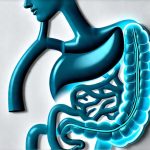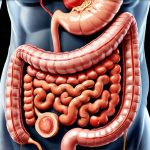Digestion is often something we take for granted until it goes wrong. A healthy digestive system efficiently breaks down food into nutrients our bodies can use for energy, growth, and repair. When this process falters, the consequences can range from mild discomfort to significant disruptions in overall well-being. Many factors can impact digestion, including diet, stress levels, aging, and underlying health conditions. While dietary changes and lifestyle adjustments are frequently the first line of defense against digestive issues, sometimes extra support is needed – and that’s where digestive enzyme supplements come into play. Understanding when your body might benefit from this type of supplementation requires recognizing the subtle (and not-so-subtle) signals your gut sends you.
The goal isn’t necessarily to replace natural digestive processes but to assist them, particularly when those processes are compromised. Think of it as providing a helping hand to your system, rather than attempting to overhaul it entirely. Digestive enzymes are proteins that catalyze the breakdown of carbohydrates, fats, and proteins into smaller molecules that can be absorbed by the body. Our bodies naturally produce these enzymes, but production can decline with age or be affected by certain health conditions. Recognizing potential deficiencies and exploring appropriate support options can significantly improve digestive comfort and nutrient absorption – leading to a healthier, more vibrant life.
Common Digestive Symptoms Suggesting Enzyme Deficiency
Many symptoms associated with poor digestion are vague and easily dismissed as simply “having a sensitive stomach.” However, consistently experiencing these issues could indicate an underlying enzyme deficiency or insufficiency. Bloating, gas, and abdominal discomfort are frequently the first signs people notice. These aren’t necessarily caused by what you ate but how your body is processing it. Undigested food ferments in the gut, leading to gas production and that uncomfortable feeling of fullness even after eating relatively small amounts.
Beyond generalized discomfort, specific patterns can be telling. For instance, difficulty digesting dairy might suggest a lactase deficiency – meaning your body struggles to break down lactose (milk sugar). Similarly, if fatty foods consistently cause nausea or diarrhea, it could point to issues with lipase enzymes, which are crucial for fat digestion. Persistent heartburn after meals isn’t always acid reflux; sometimes, it’s the result of food sitting undigested and putting pressure on the lower esophageal sphincter. It’s important to remember that these symptoms can be caused by numerous factors, so consulting a healthcare professional is essential before self-diagnosing or starting any new supplement regimen.
Finally, changes in stool consistency – diarrhea, constipation, or both – can also signal digestive issues. While temporary fluctuations are normal, chronic problems often point to an underlying imbalance. Undigested food particles can irritate the gut lining, leading to inflammation and altered bowel habits. Nutrient malabsorption due to insufficient enzyme activity can further exacerbate these problems, creating a vicious cycle of discomfort and reduced health.
Identifying Specific Enzyme Needs
Pinpointing which enzymes you might be lacking can help narrow down supplement choices and improve effectiveness. The three main categories – proteases (for protein digestion), amylases (for carbohydrate digestion), and lipases (for fat digestion) – are the starting point, but within those categories exist more specific enzymes.
- Protease deficiencies often manifest as bloating after consuming protein-rich foods like meat or beans. Different proteases target different types of proteins, so a broad-spectrum protease blend is usually recommended.
- Amylase deficiency can lead to discomfort after eating starchy carbohydrates such as bread, pasta, or potatoes. Symptoms may include gas, bloating, and diarrhea.
- Lipase deficiency, as mentioned earlier, results in difficulties digesting fats. This often manifests as greasy stools, nausea, or abdominal cramping after consuming fatty foods.
Beyond these core enzymes, others play important roles: lactase for dairy digestion, cellulase for breaking down plant fiber, and maltase/sucrase for specific sugars. Food diaries can be incredibly helpful here – tracking what you eat and how you feel afterward to identify patterns related to specific food groups. This information can then guide your enzyme selection process in consultation with a healthcare professional.
The Role of Age and Lifestyle Factors
As we age, our bodies naturally produce fewer digestive enzymes. This decline isn’t dramatic overnight but rather a gradual reduction that contributes to the increased prevalence of digestive issues in older adults. Similarly, stress, which is ubiquitous in modern life, can significantly impact digestion. Chronic stress diverts energy away from digestive processes, hindering enzyme production and gut motility.
Furthermore, certain lifestyle factors exacerbate these problems:
1. A diet high in processed foods often lacks the necessary nutrients for optimal enzyme production.
2. Frequent antibiotic use can disrupt the gut microbiome – the community of bacteria essential for healthy digestion – further impairing enzyme function.
3. Medical conditions like pancreatic insufficiency or Crohn’s disease directly affect enzyme production and absorption, making supplementation crucial.
It’s important to note that digestive enzymes aren’t a magic bullet. They work best when combined with a healthy lifestyle, including a balanced diet rich in whole foods, stress management techniques, and adequate hydration. Addressing these underlying factors alongside enzyme supplementation can yield the most significant improvements in digestive health.
Supplement Considerations & Cautions
Choosing the right digestive enzyme supplement requires careful consideration. Look for products from reputable brands that undergo third-party testing to ensure quality and purity. Enzyme supplements come in various forms – capsules, tablets, powders – with capsule formulations often being preferred due to their quicker absorption rate. Delayed-release capsules are particularly beneficial as they protect the enzymes from stomach acid, allowing them to reach the small intestine where digestion primarily occurs.
Dosage varies depending on individual needs and enzyme strength. Start with a low dose and gradually increase it until you find what works best for your body. It’s always advisable to take digestive enzymes with meals rather than on an empty stomach. However, it’s crucial to remember that these supplements are not intended to treat underlying medical conditions. If you have any health concerns or are taking medications, consult with a healthcare professional before starting enzyme supplementation. They can help determine if enzymes are appropriate for you and ensure they don’t interact with any existing treatments. Be aware of potential side effects, which are usually mild (gas, bloating) but should be reported to your doctor if severe or persistent.
Disclaimer: This article is intended for informational purposes only and does not constitute medical advice. Always consult with a qualified healthcare professional before making any decisions related to your health or treatment.


















